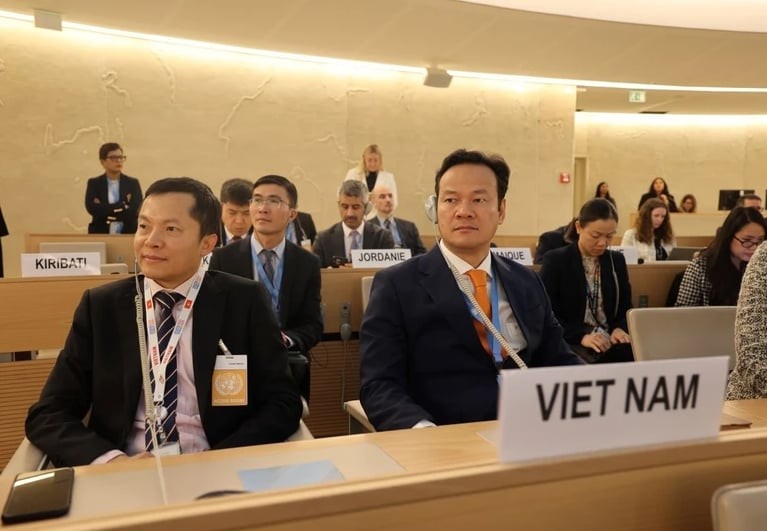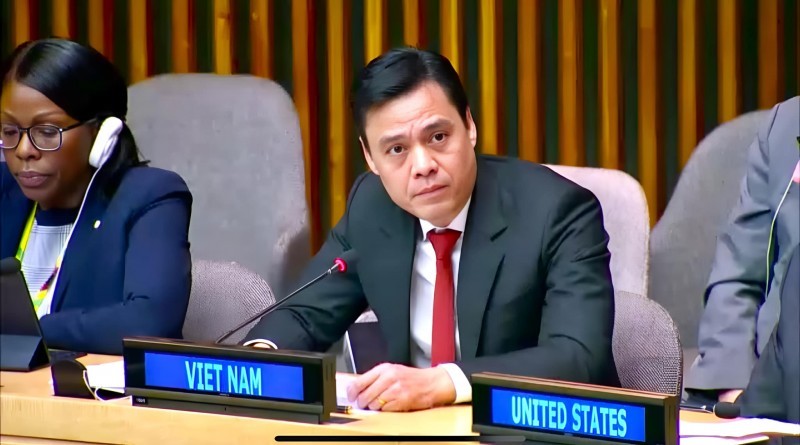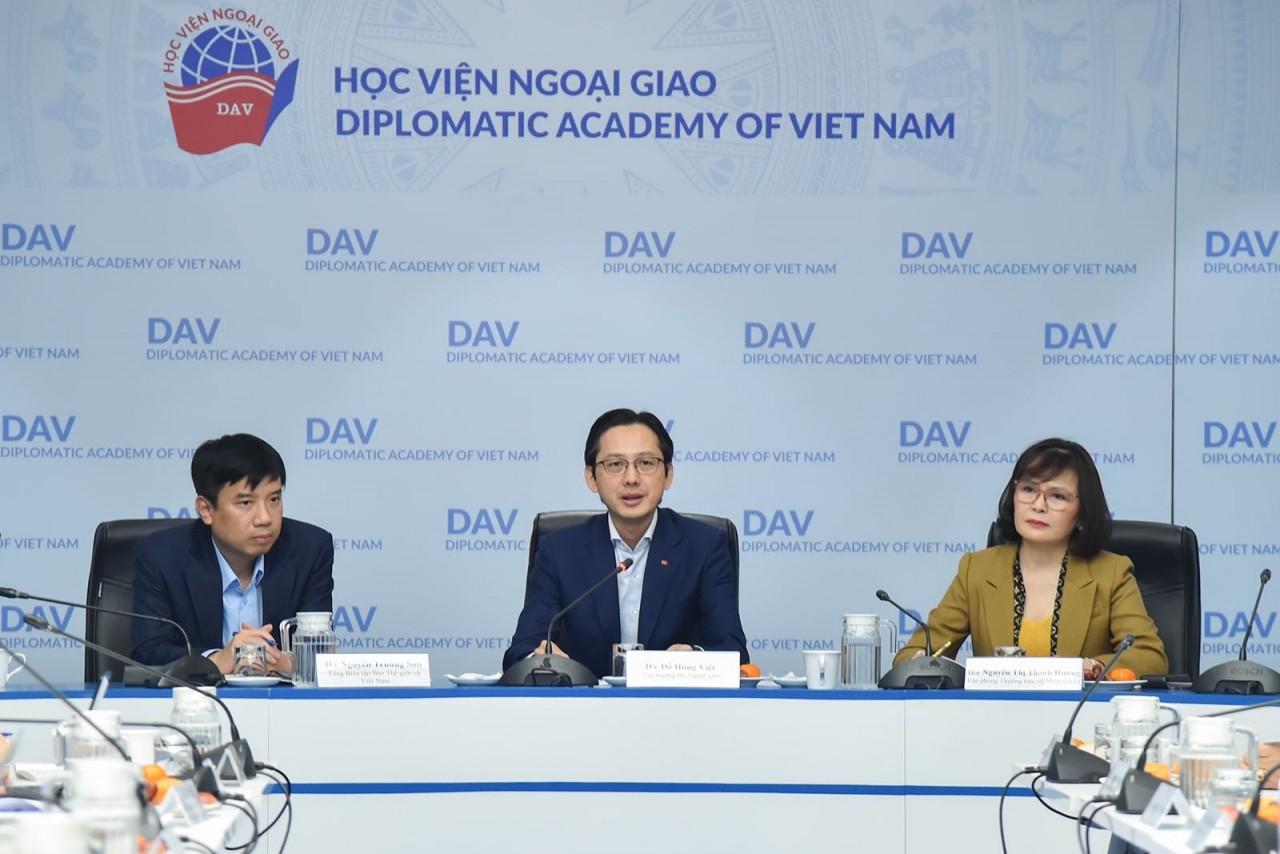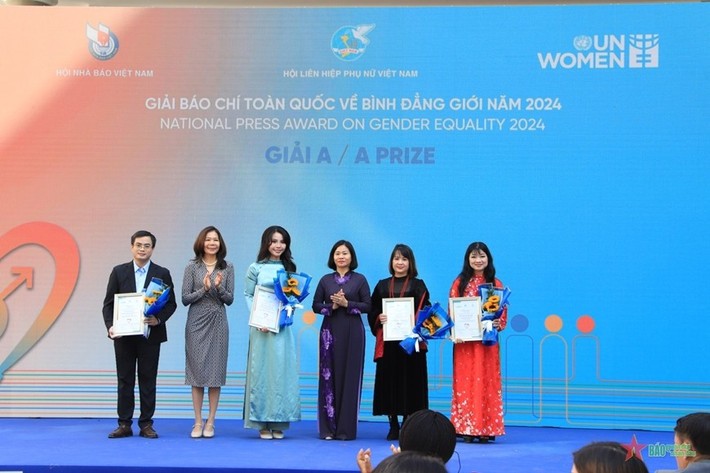UN Women Hails Vietnam’s Efforts in Developing Draft Law for Gender Transformation
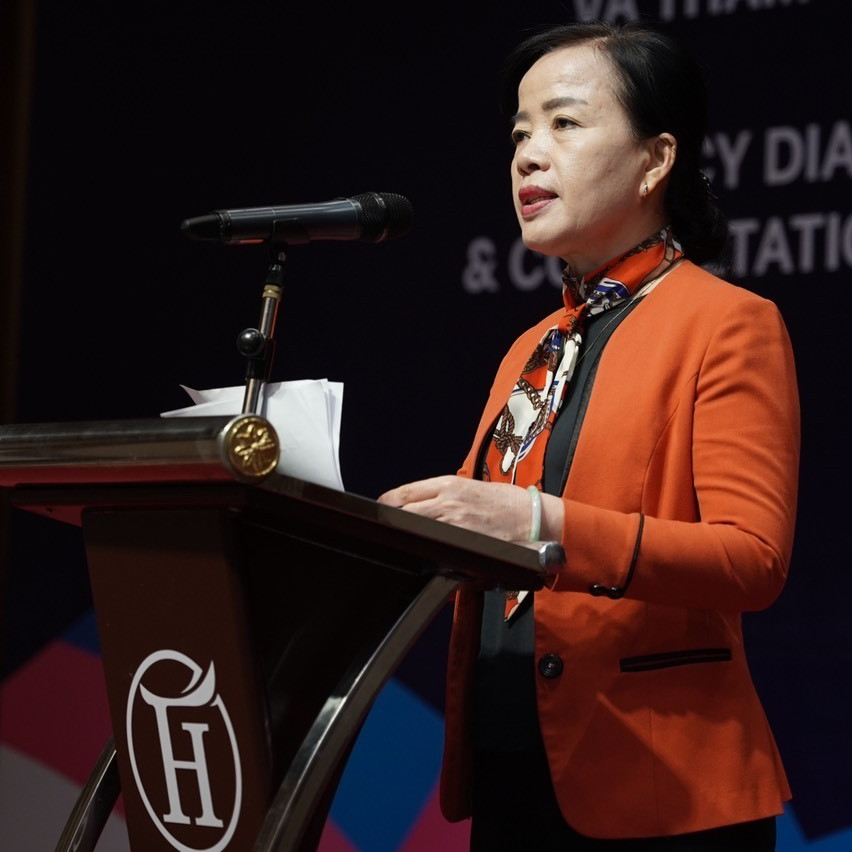 |
| Nguyen Thi Kim Thuy, deputy chair of the National Assembly's Social Committee deliver her speech at the event. Photo: VNT |
The policy dialogue on "International experience and consultation on the draft Gender Affirmation Law" on August 26 took place with the participation of more than 80 delegates from agencies of the National Assembly, ministries and agencies, society organizations, research agencies, international organizations and relevant the United Nations.
Nguyen Thi Kim Thuy, deputy chair of the National Assembly's Social Committee also attended the dialogue.
The event was co-organized by the United Nations Agency for Gender Equality and Empowerment of Women (UN Women), the Joint United Nations Program on HIV/AIDS (UNAIDS) and the Center for Supporting Community Development Initiatives (SCDI).
Speaking at the dialogue, Thuy said that the issue of recognition, respect, protection and assurance of human rights and citizens' rights in general is the throughout and comprehensive view of the Party and State of Vietnam.
Vietnam has also ratified the International Covenant on Civil and Political Rights (ICCPR), the International Covenant on Economic, Social and Cultural Rights (ICESCR), and the International Convention on the Elimination of All Forms of Racial Discrimination (ICERD), the Convention on the Elimination of All Forms of Discrimination against Women (CEDAW) and the United Nations Convention on the Rights of the Child (CRC).
Regarding the rights of gay, bisexual and transgender people, in recent years, Vietnam has made some progress in these rights.
"The dialogue will be a valuable opportunity for stakeholders, especially the agency in charge of draft law regarding transgender rights, to exchange and learn from each other, exchange and share views on the law and international practice in general, as well as of the two countries Argentina and India in particular, this is really valuable information as a useful reference for Vietnam in the context of building and perfecting the legal system and policies, based on international standards appropriate to Vietnam's socio-economic, cultural and historical conditions," said Thuy .
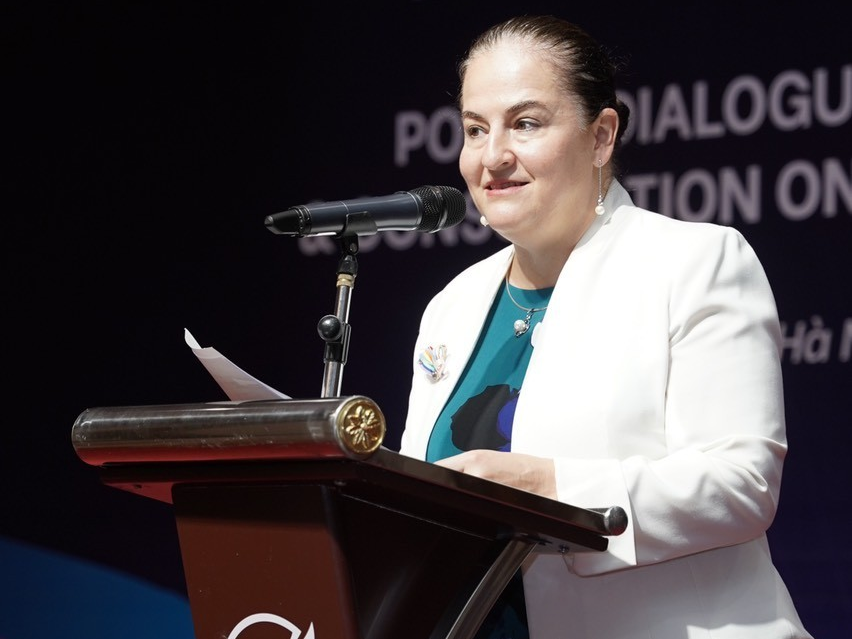 |
| Elisa Fernandez Saenz, UN Women's Representative in Vietnam appreciates the efforts of the Ministry of Health in developing the Law on Transgender Transformation. Photo: VNA |
Elisa Fernandez Saenz, UN Women's Representative in Vietnam spoke highly of the efforts of the Ministry of Health in developing the Law on Transgender Transformation. This represents the vision of the Vietnamese leadership, in line with international trends, demonstrating the principle of "leaving no one behind" of the 2030 Agenda for Sustainable Development Goals.
At the event, two international experts, Alba Rueda, special envoy for Sexual Orientation and Gender Identity of Argentina, and Ahbina Aher, transgender rights activist in India, shared their experience in developing and implementing laws and policies related to transgender people.
As a transgender activist and a policymaker, Alba Rueda emphasizes the key role the transgender community and its allies play in amplifying the voices of the transgender. She also shared her practical experiences when advocating for the development of the Gender Identity Law in Argentina, one of the world's most progressive laws on transgender rights.
At the dialogue, representatives of the transgender community also provided their comments and recommendations on the draft Gender Affirmation Law (GAL).
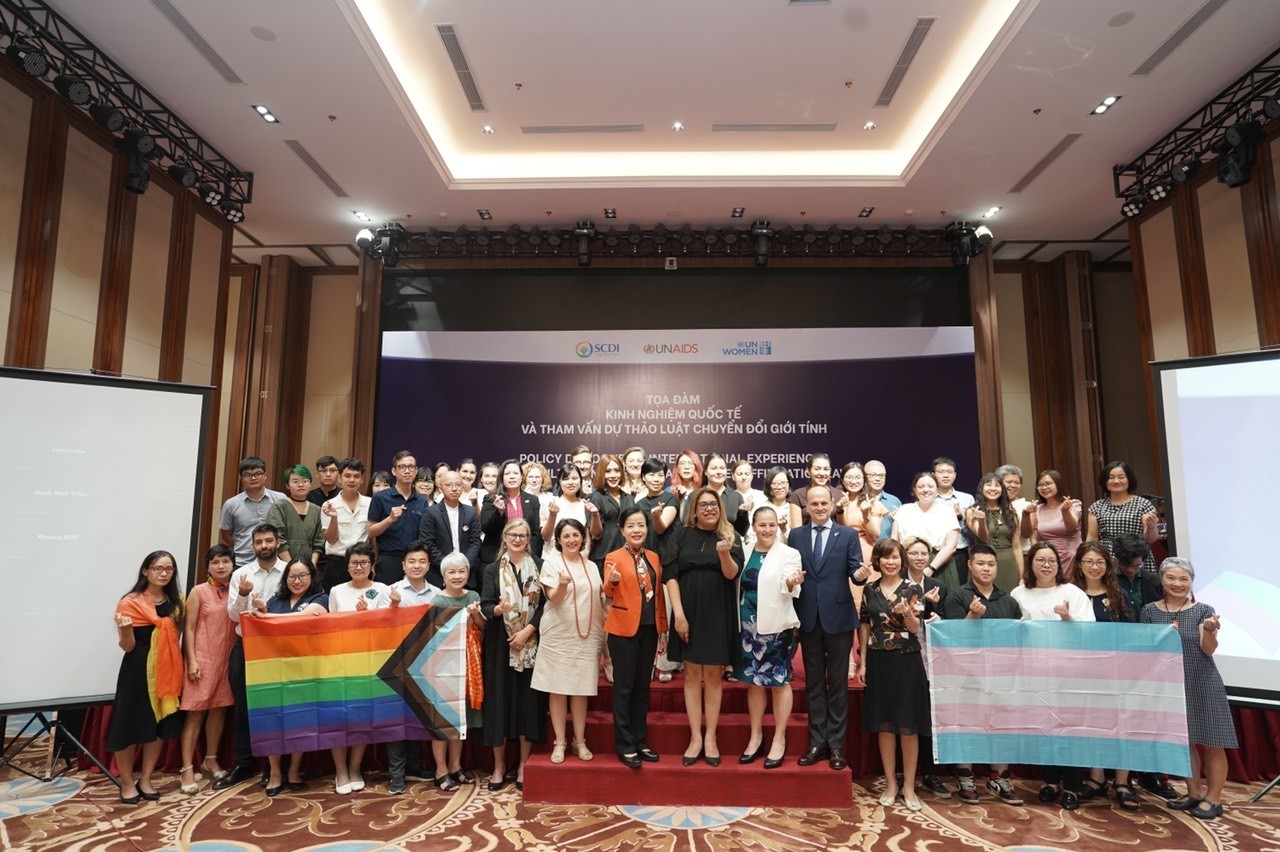 |
| The discussion left many key issues that require further reflection and action. Photo: VNT |
In November 2015, the National Assembly adopted the Civil Code which allows transgender people who have received sex assignment surgery to register as their new gender. However, their access to healthcare services including medical intervention is still limited due to a lack of a detailed legal framework.
After delays as a result of the Covid-19 pandemic, at the end of June, the Health Ministry submitted to the Government a proposal on building a draft law regarding transgender rights. If formatted and passed, the GAL will enable transgender men and women to legally reassign their sex in Vietnam.
| Vietnam is home to some 300,000-500,000 transgender people. In the face of oppressive social, cultural, and judicial difficulties, they are considered a vulnerable group. Transgender people often encounter rejection from society and their families, and are given fewer opportunities to access employment and healthcare services, she noted. Even when these institutions are available, the experience can often be isolating and traumatic. The National Assembly on November 21, 2015, passed the revised Civil Code regarding the right to gender reassignment. This is considered an important step in changing the way of thinking and gender identity. The recognition, respect, protection, and demonstration of human rights and citizens' rights are a priority of the Vietnamese Party and State. Since January 1, 2017, when the 2015 Civil Code took effect, Vietnam has allowed gender reassignment. However, which individuals are allowed to undergo gender reassignment surgery, which medical examination and treatment facilities are allowed to perform sex assignment surgery, details of the gender transition process and the procedures for transgender people to register as their new gender haven't been specified. |
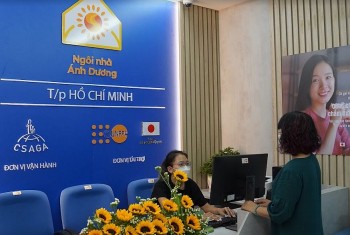 | KOICA Continues to Support Women's Safe House Model in Vietnam KOICA and UNFPA continued their commitment to zero gender-based violence and harmful practices to women and girls in Vietnam. |
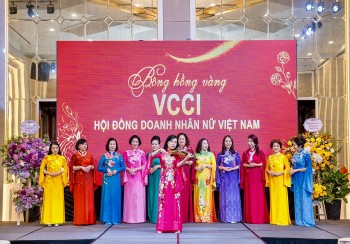 | Vietnam Ranks 83rd in 2022 Global Gender Gap Report Vietnam has climbed four places on World Economic Forum’s Global Gender Gap Index 2022 in the past year, from 87th to 83rd place out of ... |
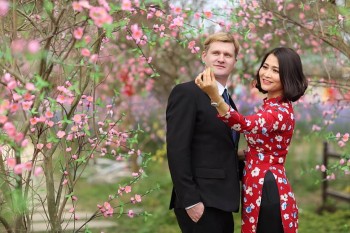 | Love Beyond Gender: How a Spouse Supports their Trans Partner The day that her husband came out, Dao Hop, 44 years old, was very shocked for the first couple of days. However, love overcomes all... |
Recommended
 World
World
Pakistan NCRC report explores emerging child rights issues
 World
World
"India has right to defend herself against terror," says German Foreign Minister, endorses Op Sindoor
 World
World
‘We stand with India’: Japan, UAE back New Delhi over its global outreach against terror
 World
World
'Action Was Entirely Justifiable': Former US NSA John Bolton Backs India's Right After Pahalgam Attack
Popular article
 World
World
US, China Conclude Trade Talks with Positive Outcome
 World
World
Nifty, Sensex jumped more than 2% in opening as India-Pakistan tensions ease
 World
World
Easing of US-China Tariffs: Markets React Positively, Experts Remain Cautious
 World
World




